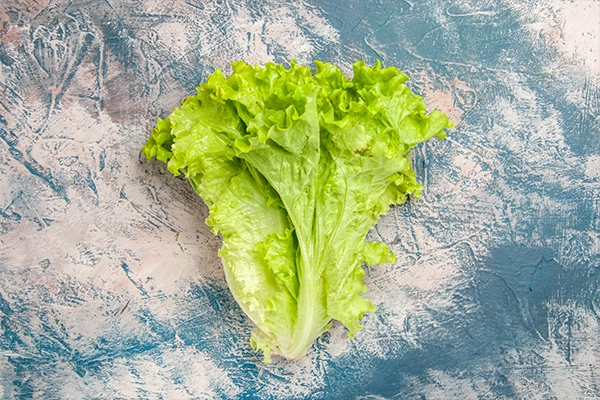The human gut plays a critical role beyond just digesting food. Over 70% of the body’s immune cells are located in the digestive system, especially in the gut. Within this complex environment lives a vast and dynamic community of bacteria, fungi, and other microorganisms known as the gut microbiome. These beneficial microbes not only aid digestion but also regulate immune responses, mood, body weight, and even brain function.
However, this delicate balance can be easily disrupted by diets high in simple sugars, processed foods, and unhealthy fats, which can damage the gut microbiome and contribute to issues like bloating, constipation, food sensitivities, and chronic diseases. Fortunately, making informed and smart dietary changes can improve gut function and maintain a healthy microbiome.
To learn more about one of the most effective foods for gut health, be sure to check out 10 Yogurt Benefits Why You Should Eat It Every Day.

10 Golden Principles of a Gut Friendly Diet:
A gut friendly diet not only helps control symptoms of digestive diseases such as colitis and Crohn’s disease but also prevents many chronic problems like inflammation, impaired nutrient absorption, and weakened immune system. In this article, you will become familiar with 10 scientific and practical principles for building a gut friendly diet that can fundamentally change your lifestyle.
1.Understanding Your Digestive Condition: The Start of the Healing Journey
To implement a gut friendly diet, it is essential to carefully observe your symptoms, sensitivities, and reactions to different foods. Keeping a daily food and symptom diary is very effective in customizing a gut friendly diet suited specifically to your needs.
2.Choosing a Diet According to Your Disease Type
There are three types of gut friendly diet plans for individuals with inflammatory bowel disease (IBD): the anti-inflammatory diet, low FODMAP diet, and low-fiber diet. Each of these is part of a gut friendly diet that helps reduce pain, bloating, and inflammation by eliminating trigger foods.
3.Paying Attention to Energy and Protein Needs
When designing a gut friendly diet, including adequate protein is crucial to repair damaged tissues and strengthen the immune system. While overall energy needs might not change much, proper protein intake is vital for a successful gut friendly diet.

4.Smart Management of Fiber, Sugar, and Fat
Reducing fiber during acute phases of illness is a necessary part of a gut friendly diet. Likewise, limiting sugars like fructose, sorbitol, and lactose, and using medium-chain triglycerides (MCT) fats play an important role in shaping an effective gut friendly diet.
5.Adjusting Dairy and Lactose Consumption
Tolerance to lactose determines the approach to dairy in a gut friendly diet. Some can consume dairy normally, while others must use lactose-free products. Aligning dairy intake with digestive tolerance is foundational in building a healthy gut friendly diet.
6.Nutrition Principles in Cases of Bowel Obstruction or Stricture
For patients with bowel strictures, a gut friendly diet includes small and frequent meals. Avoiding bulky and high-fiber foods and choosing easily digestible meals help reduce symptoms and improve the efficiency of a gut friendly diet.
7.Using Beneficial and Absorbable Fats
In patients with fat malabsorption, incorporating coconut oil or other MCT fats into a gut friendly diet provides energy and improves absorption of fat-soluble vitamins. These fats are a key component of a balanced gut friendly diet.
8.Supplementing Essential Vitamins
To maintain a gut friendly diet, supplementation of vitamins such as B6, B9, B12, iron, calcium, and vitamin D is necessary. These micronutrients aid recovery, boost immunity, and reduce fatigue, making them an inseparable part of a successful gut friendly diet.
9.Ensuring Adequate Mineral Intake
Minerals like zinc, potassium, and selenium are vital for normal body functions in a gut friendly diet. These elements play crucial roles in muscle function, gut tissue repair, and maintaining the overall balance of a gut friendly diet.
10.Incorporating Omega-3 to Reduce Inflammation
Adding omega-3 fatty acids to a gut friendly diet helps reduce inflammation, improve medication response, and speed tissue repair. Omega-3 is a valuable supplement for optimizing any gut friendly diet.

Benefits of the Mediterranean Gut Friendly Diet
The mediterranean gut friendly diet is considered one of the healthiest dietary patterns, benefiting not only the heart and brain but also gut health significantly. Recent studies have investigated the effects of this dietary pattern on the gut microbiome with promising results.
Following a mediterranean gut friendly diet can increase the diversity of beneficial bacteria, reduce inflammation, and prevent the growth of harmful bacteria. This diet emphasizes regular consumption of fresh vegetables, fruits, whole grains, fish, legumes, nuts, and olive oil, while limiting red meat and processed foods.
Key characteristics of the mediterranean gut friendly diet include:
- Regular use of extra virgin olive oil as the main fat source
- High intake of polyphenols through vegetables, fruits, and aromatic herbs
- Presence of fiber and complex carbohydrates which act as prebiotics
- Consumption of unsaturated fatty acids with anti-inflammatory properties
Nutritionally, the mediterranean gut friendly diet effectively nourishes and strengthens the gut microbiota. Polyphenols increase beneficial bacteria and inhibit pathogens, while complex carbohydrates from whole grains and legumes serve as main food sources for good gut bacteria.
It is important to note that diet alone is not enough. Adequate sleep, physical activity, stress reduction, and avoidance of alcohol and smoking are also essential for maintaining gut health alongside a mediterranean gut friendly diet.
Ultimately, this diet not only reduces the risk of cardiovascular disease and diabetes but also plays a crucial role in regulating digestion and maintaining the balance of gut microbiota. Adhering to the mediterranean gut friendly diet can be an effective step toward improving overall health, especially gut health.
Conclusion
Adopting a gut friendly diet can significantly improve digestion, reduce inflammation, prevent gastrointestinal diseases, and strengthen overall health. In this article, we covered 10 key principles each playing an important role in supporting gut health, including understanding digestive status, choosing effective diets such as anti-inflammatory or low-FODMAP, meeting protein and vitamin needs, and incorporating beneficial fats like MCT and omega-3.
Choosing fresh, high-quality, and diverse foods is crucial in implementing a gut friendly diet. In this journey, Faraz Hypermarket provides a wide range of healthy products, lactose-free dairy, whole grains, fresh vegetables, beneficial oils like olive and coconut oil, dietary supplements, and organic products, making it a reliable source for your nutritional needs.
By making informed purchases and proper planning with Faraz Hypermarket, you can easily adopt a healthy lifestyle and maintain a gut friendly diet in your daily life, taking effective steps toward better digestive function and overall wellness.










